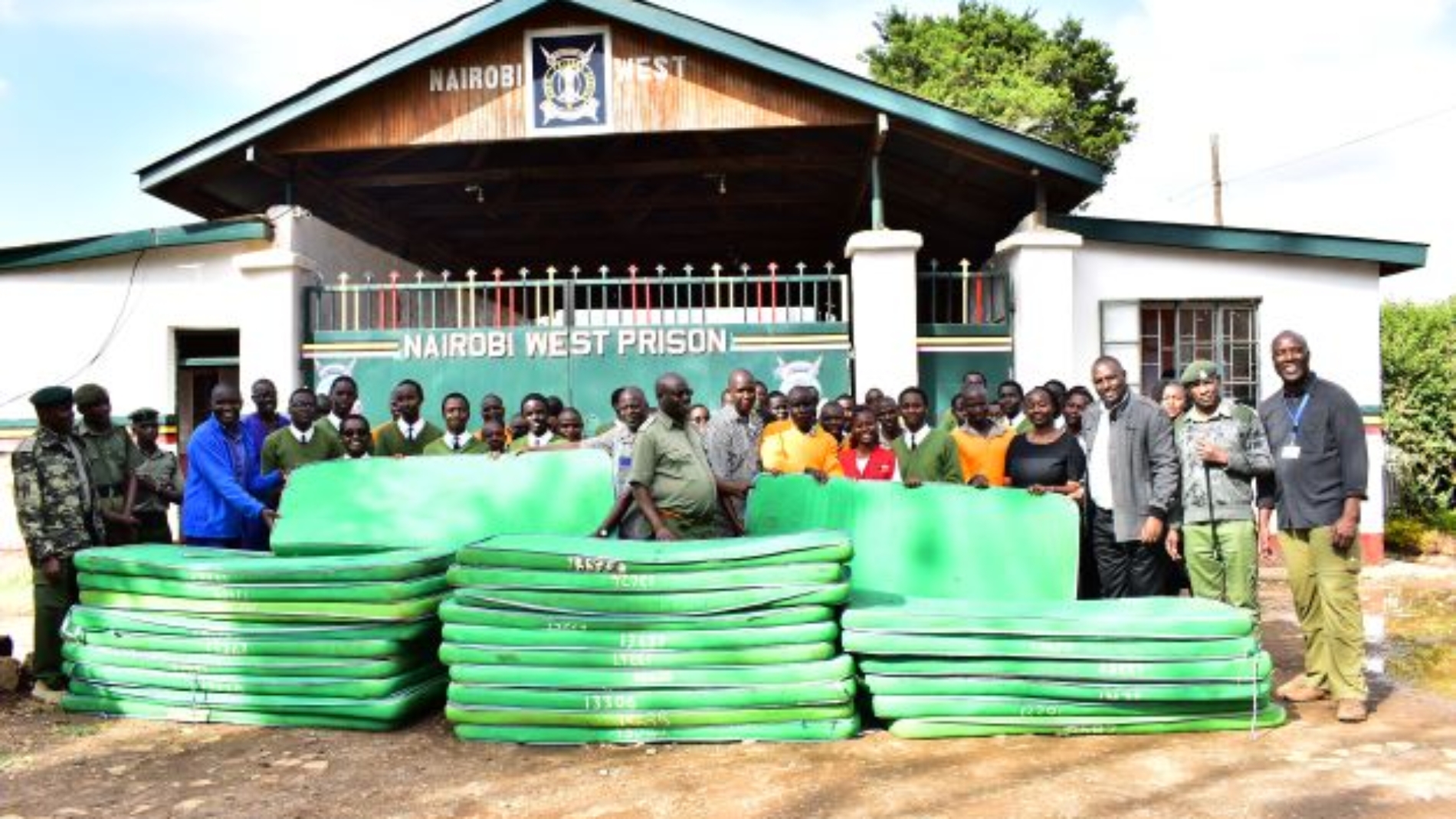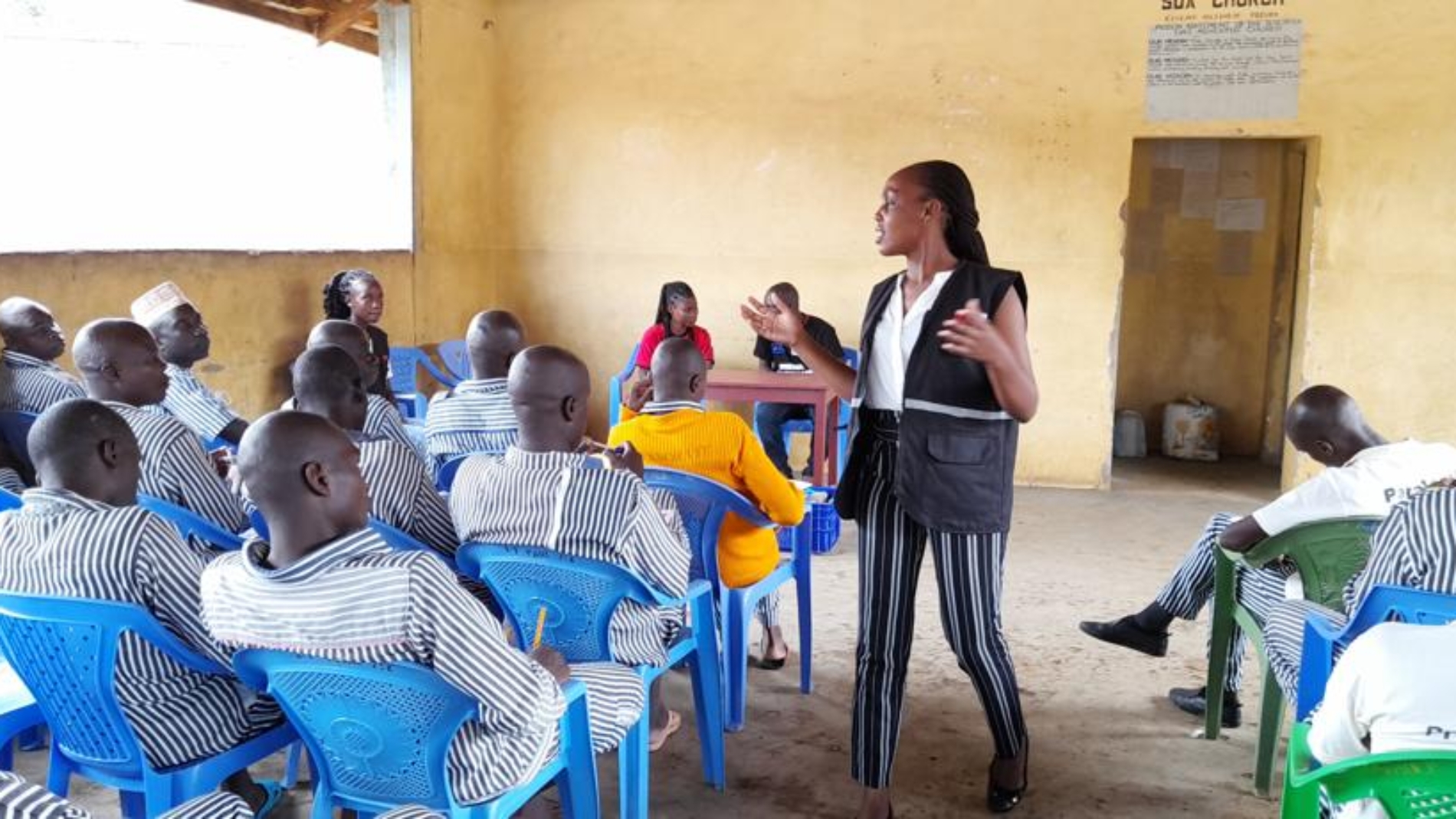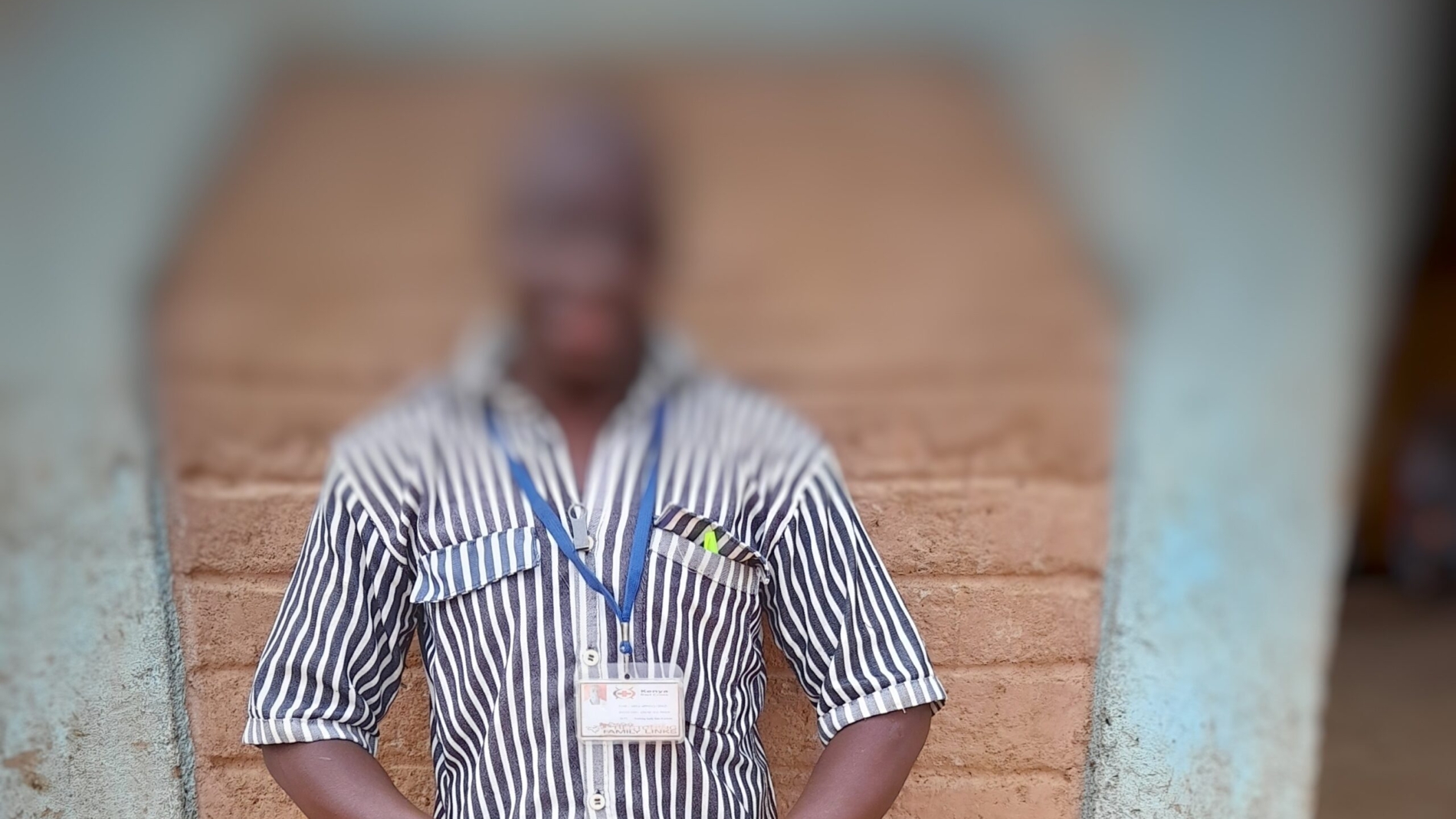An endearing, jovial smile hidden in a reserved and shy mien is the first impression that hits you when you meet him. An intern ICT trainer at our digital livelihoods department who has been impacting young people from the underserved areas of Kajiado County with ICT skills, his mastery of, and prowess in software development and computers is mesmerizing. He exudes an aura of serenity and a pinch of nerdiness. Meet Kelvin Wavomba.
His eyes betray a raw determination and willpower, born of adversity in life, to be great in life. He was not always like this he says.
Fate turned Kelvin into adult life long before he could stop being a child. “Life was not rosy growing up and I was constantly at home due to fees.” he nostalgically recalled. That however did not deter him from getting cluster points to join higher institutions of learning. Through the help of well-wishers and access to limited bursary funds, he was able to finish his high school education “I got a C+ grade, something I had not anticipated with the challenges I had gone through. Even though I was relieved, I knew it was not my ideal grade,” Kelvin says.
He had passed the first hurdle and the next waited- there was no fees for his university education. All he could cling to was hope, hope that help will come. “ I had to think fast on what to do, and without any papers for a formal job, I ended up as herder earning ($30) three thousand shillings monthly,” he said.
Even though Kelvin knew that herding was not his calling and he would eventually transition to something big in the future, he had no idea what that “something” would be. Call it an audacity of hope driving his desire to move to look for big opportunities. After working for three months, he quit his herding job and with Sh.7,000 saved from his salary, moved to Nairobi.
His destination was Kawangware commonly known as ‘Kakamega ndogo’. “I did not know anyone in Nairobi, leave alone Kawangware, but I wanted to be there. I had been told that would be like my second home,” he narrated. With his little savings going to renting a room, the next nightmare was how to get a job to maintain himself. Lady Luck gave him an immediate smile, because after just a week, his next-door neighbor alerted him of a guards’ job which applied for and got.
The immediate success birthed greed. He wanted to grow fast, rules notwithstanding. He fell afoul of the law and was soon on the radar of crime busters. The proverbial fortieth day arrived sooner than he expected, and when the sleuths called and asked him to surrender for interrogation, he decided to go on the run. He was a fugitive from justice. “I had bought a few computers to set up a cybercafé back home as my exit plan, hence my decision to run. ” he continued.
It started raining and before he could know it, it was pouring. His cybercafé was wiped clean by thieves just after a month of operation. He could not also hold phone conversations for more than thirty seconds and lived in perpetual fear of being traced and arrested. “After the burglary in my cybercafé, I knew that I could not fight or run anymore. I just did not have the energy. My time was up.” Kelvin notes while in deep thought. He however, for two years, managed to evade the dragnet laid for him. “When the investigations officer called next, I surrendered and made my location known to them. I was duly arrested the day after this phone call.”
At his trial in court, he pleaded with the Magistrate to allow him to go back to school as he was a first-time offender. After a two-month stay in remand, the Probation officer tendered a favorable report to the court, and he was given a conditional release. The Probation officer then linked Kelvin with Crime Si Poa who financed his entry to a Technical College where he is pursuing a Diploma in IT.

“Kelvin’s story was different. There was something unique about him and I knew that he had reformed. He stood out as determined and we could not deny him the chance to reboot his life,” stated Ms. Flavier Mwika, the Prisons and aftercare Program Manager at Crime Si Poa. “We support returning citizens (ex-inmates) willing to go back to school like in the case of Wavomba,” she added.
Kevin has not only proved to be an innovative and stellar student leader in his college, but has been , during his long holidays, interning with us at the digital livelihood project in Kajiado County where his teaching skills stand out. He is deploying his passion to help and mentor young Kenyans on the adverse effects of crime while equipping them with employability skills.
“My past does not define me, and I am way better than I was back then. On the flip side I would not have known Crime Si Poa who have been pivotal on my growth journey,” he said. “ I urge them to devolve all these services they are providing to the villages where many people are ignorant about the law,” Kelvin confidently says.
With our interview ended, Kelvin, the now tech guru, excuses himself to go back to the Finance office where he is helping digitize records. I can’t wait to record his next journey in life.
About our Prisons and Reintegration Program (Phoenix) – Phoenix deals with the well-being of inmates through well curated psychosocial, spiritual and life skills mentorship sessions within in prisons and aids in their reintegration back into the community upon release.
To support the Phoenix Program and ex inmates in their re-intergration journey, kindly visit: https://crimesipoa.org/donate-to-crime-si-poa/
Read Joseph Kangethe’s powerful story here : https://crimesipoa.org/hope-restored-in-a-second-chance/


















